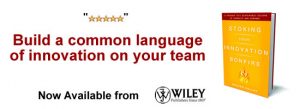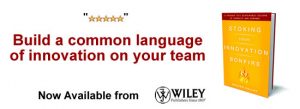Fraud and Innovation
The Societal Cost of Business Gone Bad
by Robert F. Brands with Jeff Zbar
 Bernard Madoff’s and Scott Rothstein’s Ponzi schemes. Medicaid / Medicare scams. School board officials who sell their votes for cash. Mortgage fraud, foreclosure “robo-signers†and short-sales wrought with misdeeds.
Bernard Madoff’s and Scott Rothstein’s Ponzi schemes. Medicaid / Medicare scams. School board officials who sell their votes for cash. Mortgage fraud, foreclosure “robo-signers†and short-sales wrought with misdeeds.
From Wall Street to Main Street to Washington – and the headline news, very smart, innovative people are gaining prominence nationwide for fraud. Investment scandals, Ponzi schemes and rip-offs in all forms seem epidemic.
They capture our attention. We express outrage. We demand retribution.
Then we move on – until the next event, when our attention will be captured anew. We’ll express outrage, demand retribution…and move on.
Every day, someone is screwing somebody else. It’s a vicious cycle.
Fraud is defined as the deliberate misrepresentation which causes another to suffer damages, and the U.S. is ranked in the Top 20 in corruption worldwide.
It has to end – because the societal and financial costs of these damages are just too great to maintain.
Fraud saps our national wealth and blemishes our integrity. It’s estimated that organizations lose upward of 5% of annual revenue to fraud, whether in lost revenues or corrective measures – a far higher percentage of income than is invested in innovation and research and development each year by American businesses. Add to that the billions invested in fraud prevention, detection and prosecution, and the redirected proceeds could be a real boon to businesses’ – and the nation’s – bottom line. Just imagine investing that money into R&D. What would the possible outcomes be?
Actually, creative fraudsters employ many of the same imperatives that any innovative organization should, and which are found in my book Robert’s Rules of Innovation. They are innovative, realize the need for risk, create new products, take ownership of their ideas, seek to create value, and train those around them. It’s an interesting – if frightening – parallel.
Yet the real question is: How have we as a society and culture become so complacent as to accept fraud as a fact of life (our professed disgust notwithstanding) – and a course of business?
Conventional thinking would have the remedy be as simple as arrest, prosecution – and a public mea culpa. We’ve come to accept an apology as suitable and sufficient for explaining away criminal activities. Once the apology has been offered, the fraudster – and society – put it behind us and move on. We turn the page or change the channel, and forget all about it.
Some investors seem especially willing to overlook even the possibility of fraud, as long as returns show a 45-degree upward angle on the profit chart. Who can argue that?
Society can. Because left behind is a society stained with the aftermath of the fraud itself – and burdened with the price of remedy. Prosecutors and investigators continue to follow the trail. Companies explain the bottom line’s blemish to shareholders. Individuals – pension holders, retirees, investors – are left to try to recoup their losses – if they even can.
Children of immigrants can recall their work ethic their parents brought (with precious few other possessions) from the old country. Even today, as we lament illegal immigration, people just want jobs so they can feed their families. The people who built this country held an integrity that is missing with today’s cons.
Instead, invest that creative, innovative thinking into legal work that will produce positive, admirable and accountable results that investors – and society – can proudly take to the bank.
Along the way, we have to become culturally intolerant of fraud, demand greater penalties from those found guilty, and seek a return to the respectable business pursuits that made us great – and will make us known again as the global leader in innovation and the ethical pursuit of business.
In short, the buck must stop here.

Don’t miss an article (1,900+) – Subscribe to our RSS feed and join our Continuous Innovation group!
 Robert Brands is the founder of InnovationCoach.com, and the author of “Robert’s Rules of Innovation: A 10-Step Program for Corporate Survival”, with Martin Kleinman – published Spring 2010 by Wiley (www.robertsrulesofinnovation.com).
Robert Brands is the founder of InnovationCoach.com, and the author of “Robert’s Rules of Innovation: A 10-Step Program for Corporate Survival”, with Martin Kleinman – published Spring 2010 by Wiley (www.robertsrulesofinnovation.com).
NEVER MISS ANOTHER NEWSLETTER!
LATEST BLOGS
The Second Coming of the Retail Health Clinic
There used to be a day when you could go to your local barber and get all sorts of wonderful…
Read MoreCan Microsoft out-innovate Google?
Microsoft announced today a round of updates to its Live Search offering. Searchengineland had a good story on the developments.…
Read More



Fighting corruption can also be innovative: https://www.ted.com/talks/lang/eng/shaffi_mather_a_new_way_to_fight_corruption.html